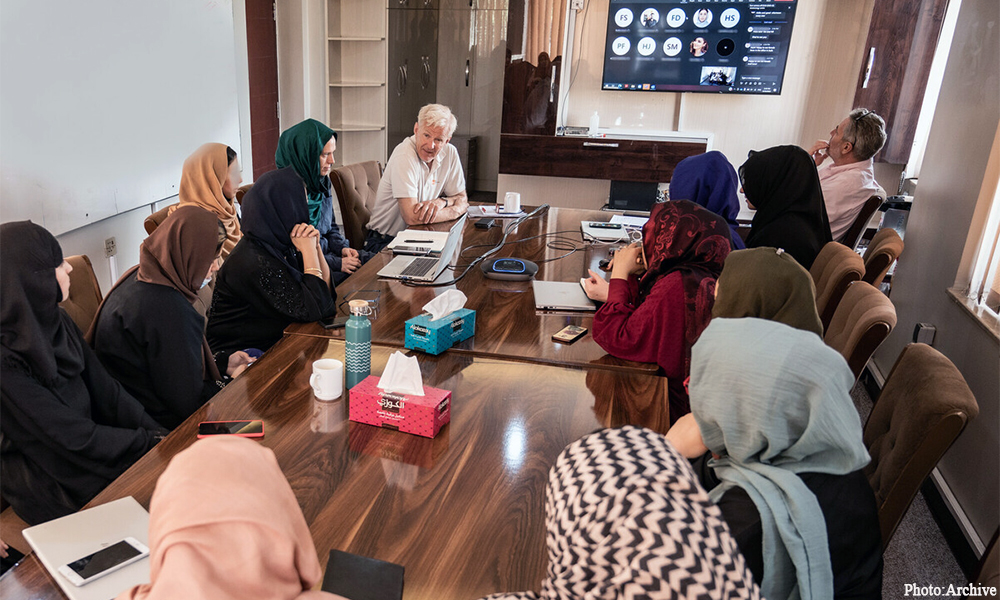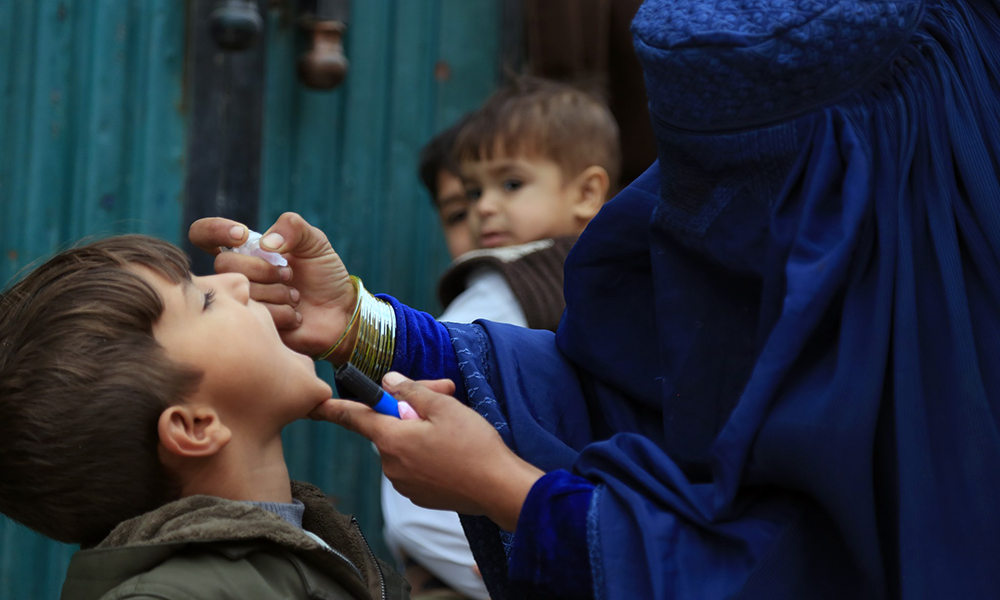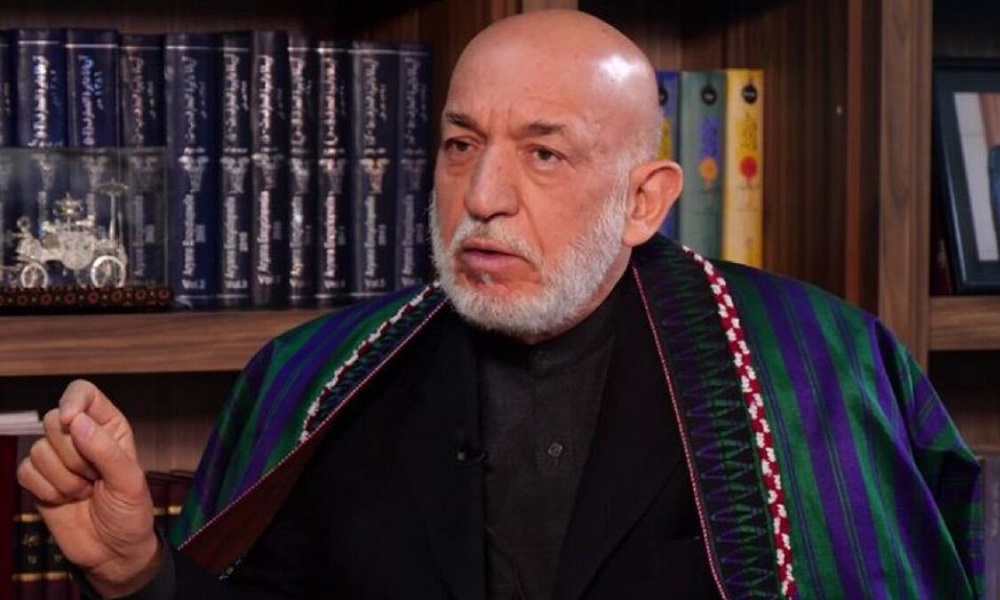Latest News
NRC resumes operations in parts of Afghanistan with male and female staff

Norwegian Refugee Council (NRC) announced on Sunday that the council has resumed humanitarian operations with “equal participation” of male and female staff in different regions of Afghanistan.
“I am glad to confirm that we have been able to resume most of our humanitarian operations in Kandahar as well as a number of other regions in Afghanistan,” Jan Egeland, Secretary General of the Norwegian Refugee Council, tweeted.
Egeland further stated that: “All our work is for women & men, girls & boys alike, & with equal participation of our female & male humanitarian colleagues.”
The IEA has not yet commented on the NRC's announcement.
This comes after Egeland said last month that key Islamic Emirate of Afghanistan (IEA) officials told him in meetings that they are close to finalizing guidelines that will allow Afghan women to resume work at nongovernmental organizations (NGOs).
But they were unable to give a timeline or details when pressed, he said.
The IEA last December barred Afghan women from working at NGOs, allegedly because they were not wearing the hijab correctly and were not observing gender segregation rules.
In April, they extended the ban to UN offices and agencies in Afghanistan. There are exemptions in some sectors like health care and education.
In January, the IEA said they were working on guidelines for women to return to work at NGOs. They previously said they were working on guidelines so that girls and young women could return to education but these have yet to materialize.
During his visit to the country in May, Egeland hoped to persuade the IEA to reverse the ban on the organization’s female staff.
Egeland met the Kandahar deputy governor, Mawlawi Hayatullah Mubarak, who he described as having “direct contact with and links” to the IEA’s supreme leader Hibatullah Akhundzada, who ordered the education and NGO bans. He also met the head of Kandahar’s Economy Directorate, Mawlawi Abdul Salam Baryali.
“The authorities in Kandahar have a special position since the emir (Akhundzada) sits in Kandahar,” he said at the time.
“Whatever agreement we can get in Kandahar can have a national impact. These guidelines are close to being finalized and should soon be put into effect that is what was conveyed.”
Egeland said he pressed the officials for a timeline and clarity on the word “soon” but they didn’t elaborate.
He was told the IEA couldn’t guarantee anything as everything needed to be put to the supreme leadership. They also told him they had been working on the NGO matter for months and that most issues have been resolved.
The guidelines are likely to cover dress codes, gender segregation in the workplace, and a chaperone for travel.
The Norwegian Refugee Council stood to lose 40% of its funding for Afghanistan because of the bans on female employment and education, he said.
He said the potential loss meant a 40% drop in the number of people reached.
The agency has also laid off 220 of its 1,500 workforce and closed five offices. But it retains male and female Afghan staff who have been unable to work because of the bans. The agency is not deploying male-only teams.
“I believe their promises,” he said last month of the IEA. “But I can only accept the facts.”
The IEA has repeatedly told senior humanitarian officials visiting Afghanistan since December that the NGO restrictions are temporary suspensions, not a ban.
Latest News
A new polio vaccination campaign is set to launch in Afghanistan
Afghanistan and Pakistan are the only two countries in the world where polio has not been eradicated.

The “Afghanistan Polio-Free” organization announced that a new round of polio vaccinations will begin on Monday, December 23, in various provinces of Afghanistan.
The organization did not specify which provinces will be targeted or how long the vaccination campaign will last.
Afghanistan and Pakistan are the only two countries in the world where polio has not been eradicated.
On December 4, 2023, the World Health Organization (WHO) issued a statement reporting a 283% increase in polio cases in Afghanistan. According to the WHO, the number of positive environmental samples for wild poliovirus type 1 in Afghanistan in 2024 reached 84, compared to 62 cases in 2023.
The Ministry of Public Health claimed in November 2024 that no new cases of polio had been reported in Afghanistan for the year.
Latest News
G7 envoys urge national dialogue for lasting stability in Afghanistan

Special Representatives of the Group of Seven (G7), including the European Union, have emphasized the importance of a national dialogue for achieving long-term stability in Afghanistan.
Following a meeting on Afghanistan in Geneva, Switzerland, G7 special envoys issued a joint statement calling for the restoration of women's rights and urging the Islamic Emirate to fight terrorism.
The statement reads: "Achieving sustainable peace and stability requires credible governance that represents all segments of Afghan society."
The representatives also expressed concern over the IEA’s decision to ban girls from attending medical institutes, warning that it will have devastating consequences for the citizens, particularly mothers and their infants.
The statement described this ban as unacceptable and called on the Afghan authorities to lift it immediately.
Earlier, countries and international organizations had called for the removal of restrictions on the education and employment of women and girls, emphasizing the need for a national dialogue.
In response to these concerns, IEA has repeatedly stated that it will not allow interference in the internal affairs of the country.
The G7 special envoys also expressed their concern about the recent terrorist attacks in Kabul and the surrounding region, warning that terrorism remains a serious threat to Afghanistan's security. They confirmed the actions of the IEA against Daesh but stressed the need for more decisive measures.
Latest News
Afghanistan’s bright future lies in educating girls: Karzai

Hamid Karzai, the former president of Afghanistan, says the demand of Afghan girls for the reopening of schools and universities is their fundamental right and adds that Afghanistan cannot have a bright future without ensuring access to education for girls.
In a statement on his X (formerly Twitter) account, Karzai said: "The demand and voice of our country’s girls for education and knowledge is a rightful one and crucial for a prosperous Afghanistan."
He further emphasized, "Empowering the youth—both girls and boys—is the only way to achieve self-reliance, break the cycle of poverty, and drive the development and prosperity of society."
Karzai underscored that education is vital for Afghanistan’s growth and development, expressing hope that the doors of schools and universities for girls will be reopened as soon as possible.
-

 Sport5 days ago
Sport5 days agoLanka T10: All three matches abandoned due to rain
-

 Latest News5 days ago
Latest News5 days agoIndia hoping to import coal and marble from Afghanistan
-

 Sport4 days ago
Sport4 days agoZimbabwe’s opening ODI against Afghanistan abandoned
-

 Latest News5 days ago
Latest News5 days agoJapan announces $27.5 million aid package to Afghanistan
-

 Latest News3 days ago
Latest News3 days agoTwo horror accidents on Kabul-Kandahar highway leave 52 dead
-

 Latest News1 day ago
Latest News1 day agoAfghan men must stand with women to support viable future of country: US envoy
-

 World3 days ago
World3 days agoNorth Korean troops suffer 100 deaths, struggling in drone warfare, South Korea says
-

 International Sports4 days ago
International Sports4 days agoLanka T10: Kandy Bolts in at 4th spot in playoffs after thrilling day
























